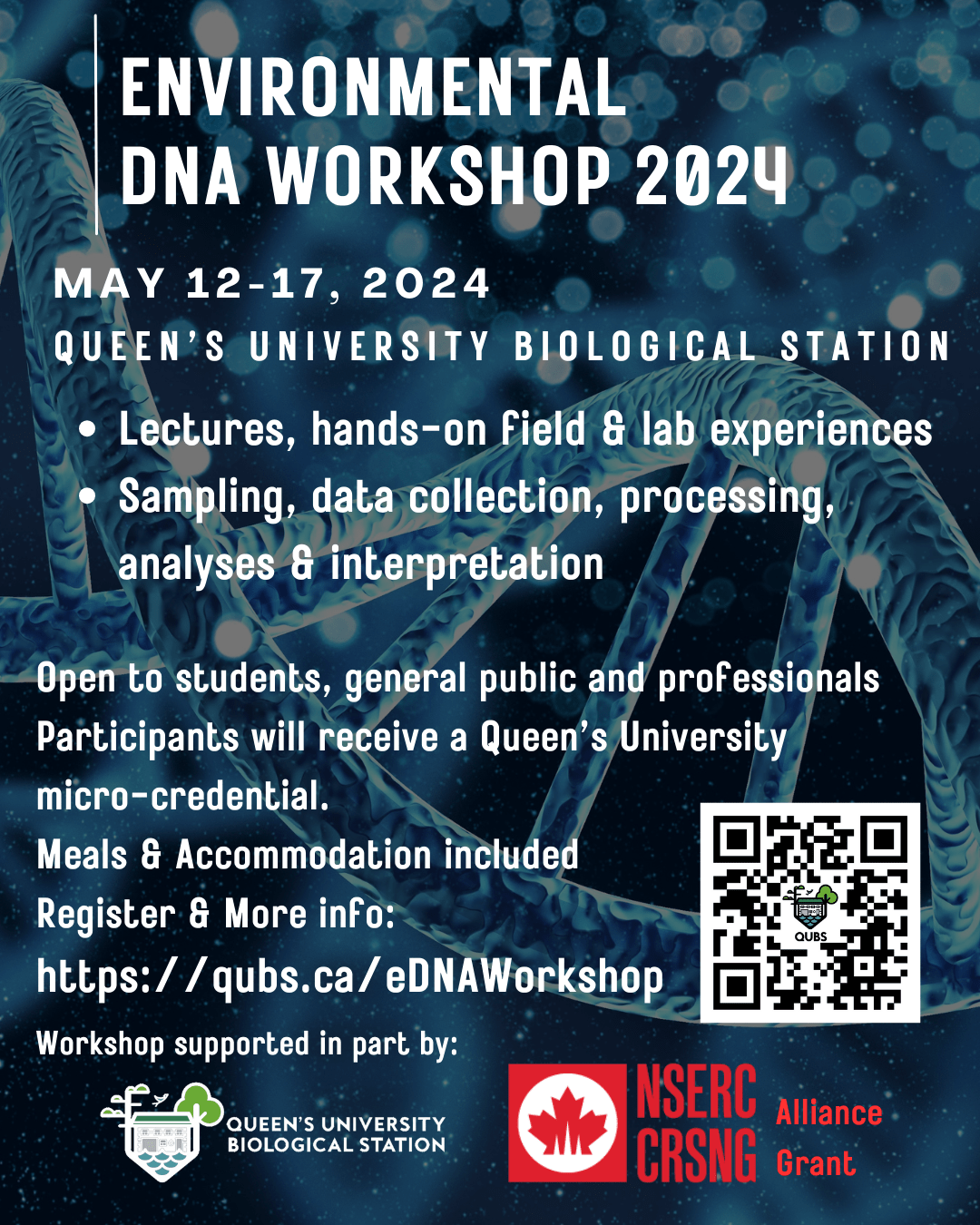
- This event has passed.
Queen’s University Environmental DNA Workshop 2024

Where: Queen’s University Biological Station – Opinicon Campus
When: Arriving Sunday, May 12th to Friday, May 17th 2024
Target audience: professional biologists in governmental or consulting sectors, NGO personnel, senior undergraduates and grad students seeking additional skills
Registration: Meals & accommodations included.
Students $875, General Public/Professionals $1150
Transportation to/from Kingston and the Biological Station is included (from Queen’s University main campus or Kingston bus or train stations)
Participants will receive a Queen’s University micro-credential.
Synopsis: Environmental DNA (eDNA) is becoming a mainstay of non-invasive, reliable, and cost-effective surveys of at-risk and invasive species, pathogen detection, and biodiversity assessment. These approaches rely on the fact that organisms leave their DNA in the environment, making it possible to detect their presence without capture or even direct observation. Reliable eDNA data depend on field and lab rigorous technique because significant biases can occur through the process from the sampling to the data processing, and they greatly influence species detection results.

This eDNA workshop will provide a broad overview of the approaches used in eDNA studies for both single-species and multi-species detections. This five-day course will benefit those interested in undertaking or overseeing eDNA studies, or evaluating research proposals and research, especially in management and monitoring applications. The workshop includes lectures, field and lab demonstrations, and hands-on training in analysis and interpretation of data, but does not require detailed knowledge of genetics or molecular biology. We offer a background on sources and fates of eDNA in the environment, methods and applications with emphasis on design, implementation, analysis and interpretation of species-specific and multi-species eDNA approaches. We will cover advantages and limitations of each , as well as the precautions needed through the whole process to get robust data. We will provide a manual that includes method overviews, field and lab protocols, links to key web resources, and useful literature.
Instructors (click on names for bios): Lectures. Dr. Dilini Abeyrama, Dr. Bojian Chen; Labs. Allen Tian, Stafford Maracle
Consultants: Dr. Steve Lougheed, Dr. Yuxiang Wang, Dr. Orianne Tournayre
Guest speakers: TBA
- Yes
- Yes
